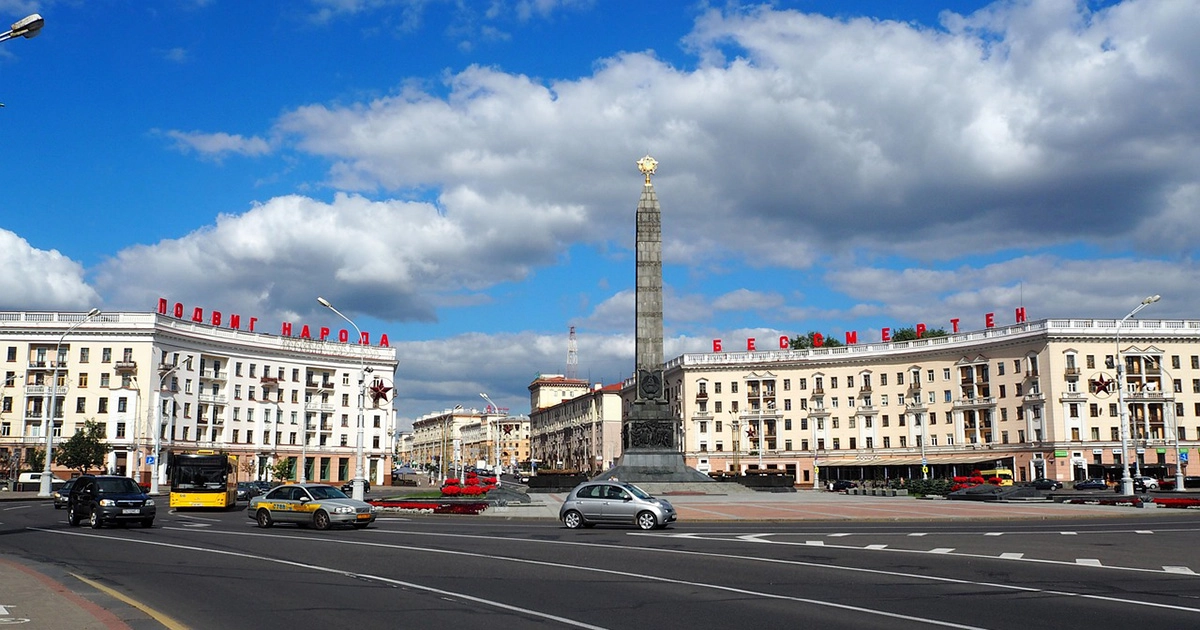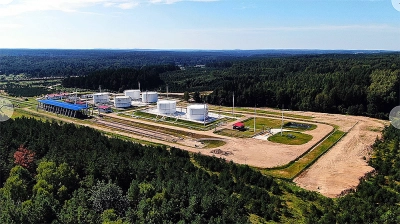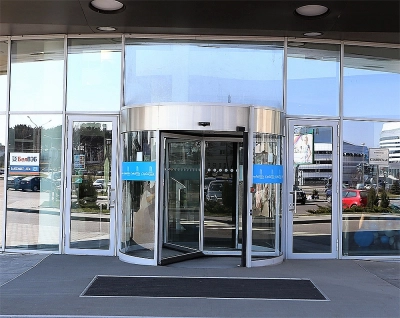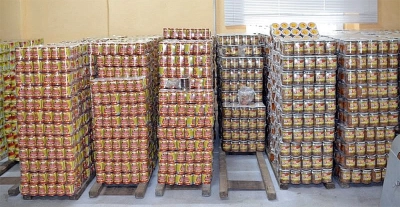Belarus
Belarus is an independent state in Eastern Europe. This is one of the most friendly and open countries for Russian tourists. Despite some similarities with Russia (language, mentality, appearance of people, etc.), there is a unique atmosphere here, a wonderful identity and its own traditions, which are revered and passed down from generation to generation. Tourists call Belarus a green and cozy country.
The official name of the state is the Republic of Belarus. In Russia, the variant "Belarus" is more common. And it is not surprising, because until 1991 this country was part of the USSR and was called the “Belarusian Soviet Socialist Republic”. After the collapse of the Union, she got a new name, and therefore the country asked to use only the official version.
The capital of Belarus is the city of Minsk. In total, about 9.5 million people live in Belarus, of which almost 2 million are Minsk residents. The second largest city in the country after the capital is Gomel: 536 thousand inhabitants. The official languages in the Republic are Belarusian, also known as the “Belarusian language”, and Russian. Belarus is a country where agriculture is actively developing and supported at the state level. At the official and legislative level, tolerance towards all religions is maintained in the country. The most widespread religion is Christianity. The monetary unit is the Belarusian ruble.
Slavs began to penetrate the territory of modern Belarus in the first centuries of our era. Over several centuries, they settled throughout the region, gradually assimilating the Baltic tribes that lived on these lands. Further, the Belarusian lands became part of the Grand Duchy of Lithuania. For several centuries it has played a serious role in European politics. After that came the turbulent era of the Commonwealth. As a result of the endless wars, the Commonwealth was greatly weakened and ceased to exist as an independent state.
After its division, the Belarusian lands became part of the Russian Empire. In its new territories, the Russian government began to actively pursue a policy of Russification. In 1906, the Stolypin agrarian reform began in the Russian Empire. One of the measures of the reform was the mass forced resettlement of peasants from Belarus to Siberia. In 1919, the Belarusian Soviet Socialist Republic was proclaimed. In 1945, Belarus was accepted as a founding member of the United Nations.
July 27, 1990 Belarus became an independent state. In 1991, Belarus, together with the RSFSR and Ukraine, signed the Belovezhskaya Accords on the creation of the CIS. In 1994, Belarus held elections for the first ever independent state of the President of the Republic of Belarus. They elected Alexander Grigoryevich Lukashenko.
The Republic of Belarus is located in Eastern Europe. It borders Poland to the west, Lithuania to the northwest, Latvia to the north, Russia to the east and northeast, and Ukraine to the south. The total area of this country is 207,600 sq. km. More than 40% of the territory of Belarus is occupied by forests, where valuable tree species (pine, spruce, oak, birch, aspen and alder) mainly grow. Belarus is divided into six regions with administrative centers: Brest, Vitebsk, Gomel, Grodno, Minsk and Mogilev. Within the boundaries of the regions, 118 districts have been identified.
Tourists from Russia do not need a visa to Belarus. Moreover, when entering the country, stamps are not put in the passport, and both a foreign and a civil passport are suitable for traveling. The most important transit flows of the entire continent pass through the country, including one of the main transport corridors of Eurasia from the southwest to the northeast. Also, the shortest transport routes linking the two seas — the Baltic and the Black — pass through the country.
The original and unique culture of the Belarusian people has a long history, it originates from the process of settlement of the Slavic tribes and their interaction with the Balts tribes who previously lived on these lands. Then the culture of the Radimichi, Krivichi and Dregovichi tribes that settled here was greatly influenced by the baptism of Rus' in 988 and their adoption of Christianity. One of the most ancient monuments of East Slavic architecture that has come down to us is the Transfiguration Cathedral. In those days when the territory of Belarus was part of the Grand Duchy of Lithuania, a large number of castles and fortresses, Gothic churches and Catholic churches were created.
Belarus was the birthplace of such celebrities as the avant-garde artist Marc Chagall, the first woman professor of mathematics Sofya Kovalevskaya, the Soviet front-line writer Vasil Bykov, and others. All of them are an integral part of not only Belarusian, but also world culture as a whole.
Features of the traditions and mentality of the Belarusian people are interesting to study. Residents of Belarus respect foreigners, representatives of national minorities living in their country. They keep in themselves the so-called middle, which helps them to remain original, being between the Western and Eastern worlds. This encourages them to find their own way of development. They are patient, hardy, not aggressive. This people has often been a victim of violence, and therefore denies it. Belarusians are looking for peaceful ways to solve problems.
The peculiarity of the mentality of this people is that they do not put themselves above other nationalities. They show freedom, courage, patriotism. Their characteristic features should also include openness, ingenuity, good nature, complaisance, tolerance. They are guided not only by their own interests, but also by the interests of society as a whole. The formation of the Belarusian ethnos was influenced by two peoples — the Slavs and the Balts. From the Slavs, they inherited hospitality, patience, kindness, goodwill. From the Balts they inherited a restrained, industrious disposition.
Belarus is a presidential republic, which is governed by the President and the Parliament — the National Assembly. The National Assembly consists of the House of Representatives (110 deputies) and the Council of the Republic (64 members). The House of Representatives has the right to appoint the Prime Minister and introduce bills. In turn, the Council of the Republic has the right to choose officials, and can also approve or reject bills adopted by the House of Representatives. The Council of Ministers of the Republic of Belarus is headed by the Prime Minister.
The main principle of the implementation of state power in the Republic of Belarus is the principle of division into legislative, executive and judicial powers. The presidential form of government in the Republic of Belarus allows to have a party system. There are few parties, they do not take an active part in the political life of the state. This is partly due to the policy developed by the state in relation to non-profit organizations: back in 2011, a provision appeared in the country's Criminal Code providing for responsibility for the use of foreign financial assistance by them.
The economy of Belarus is based on the processing and re-export of raw materials imported from Russia, mechanical engineering, the chemical industry and agriculture. In Belarus, as in Russia, workers of technical professions are more in demand: engineers, masons, plasterers, concrete workers, tractor drivers, drivers.
The specificity of industrial production in Belarus is that the approach to it is still Soviet, that is, planned. And this, despite the fact that the country declares the transition to the era of capitalism and commerce. Traditional industries for the Republic of Belarus: metallurgy, metalworking and mechanical engineering, chemical and petrochemical. The food industry produces the best quality products in the country, and the supply of dairy products takes 4% of the world.
During the years of being in power, Alexander Lukashenko created a unique economic model in Belarus, unlike the examples of other countries, which can be called “socialist capitalism”. It showed its effectiveness, in a number of foreign media it was even called the “Belarusian miracle”. Improving the quality of life of the population based on the growth of the competitiveness of the economy, attracting investment and innovative development is the main goal of Belarus' development in the coming years. The basis for the growth of competitiveness is innovative development, financial recovery of the real sector of the economy, reduction of all types of costs, increase in the contribution of small and medium-sized businesses.
The business climate in Belarus is assessed by experts as stable. At the micro level, its main elements are a quick and cheap business registration procedure, a flexible labor market, an efficient property registration system, transparent mechanisms for obtaining a loan and bankruptcy procedures, protecting the rights of investors, enforcing contracts and closing a business.
Tax indicators almost do not differ from Russian ones. First of all, employers pay 34% from the wage fund to the Social Protection Fund. Further, income tax is withheld from the employee. Its basic rate is the same as in Russia - 13%. For individual incomes, the rates may be higher or lower.
Among the problems that hinder the development of small businesses are usually high taxes, expensive and unaffordable loans, complex bureaucratic procedures, and unequal working conditions compared to state-owned enterprises.
In general, the development of small business in Belarus was not as fast as in Russia. However, there is a simplified taxation system with rates from 2 to 5% of income, and the state considers the development of small business as one of the key areas for economic development.
The business climate in the country is regulated by administrative procedures. For several years there has been a program to simplify them. Already in about 300 types of procedures, the terms or the number of documents that must be submitted have been reduced.
Belarus also has preferential regimes that provide significant tax and other benefits for residents. Real estate tax 0% for objects located on the territory of the HTP, with the exception of objects leased. The land tax is 0% for the period of construction of capital buildings by HTP residents, but not more than 3 years.
An analysis of the investment climate in Belarus demonstrates both significant strengths (preferential treatment, human capital, etc.) and a number of constraining factors. The competitive advantages of the country are preferential treatment, developed IT-sector, favorable geographical location, qualified and inexpensive labor force, developed logistics infrastructure, positive experience of interaction with international financial institutions, visa-free regime (30 days).
The constraining factors are as follows: low level of economic freedoms in accordance with international ratings, economic and political sanctions, credit ratings of a speculative level, a relatively low index of the quality of public administration of the World Bank, a low level of development of innovative and high-tech industries, a low level of corporate governance, the law enforcement system is complex and changeable.
Nevertheless, the country is assessed as promising in the field of investment. Belarus is included in the group of countries with a very high level of human development, characterized by a relatively low level of labor costs. Foreign direct investment on a net basis in Minsk is 47% of the total. Industry is the industry leader in FDI.
The National Investment and Privatization Agency is the largest organization in Belarus that supports businesses and investments. The work of NAIP is aimed at improving the investment image of the Republic of Belarus abroad, assisting foreign businesses in the implementation of investment projects in Belarus.
NAIP provides the following services to investors:
- Providing up-to-date information on investment projects;
- Selection and presentation of information on options for land plots and premises;
- Search for potential partners for the implementation of the investment project, organization of meetings, negotiations with potential partners;
- Organization of visits to the Republic of Belarus;
- Post-investment support.
Currently, NAIP has a database of more than 1,200 investment proposals and PPPs, from which the most attractive projects were selected by the rating agency's analysts.


271,611,813 ¥

36,578,269 ¥









